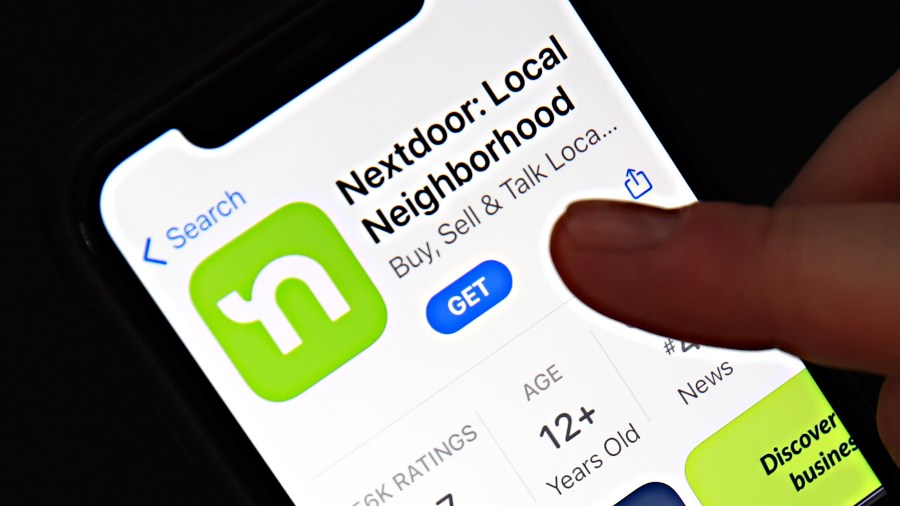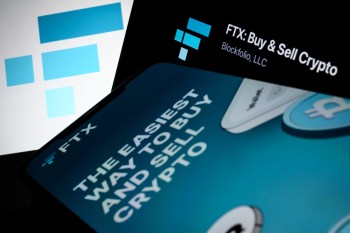What does it take to get people to be kind online?

The neighborhood social media platform Nextdoor is planning to go public at a valuation of around $4.3 billion.
The company says it saw astronomical growth in active users this past year. Its shares will be traded under the ticker symbol “KIND”; part of the company’s mission, it says, is to cultivate kindness. At the same time, the platform has struggled to deal with hate speech and the spread of misinformation.
Susan McGregor is a scholar with the Data Science Institute at Columbia University. She said even though people may know one another on Nextdoor, it doesn’t necessarily make them nicer. The following is an edited transcript of our conversation.
Susan McGregor: One thing we know is that people are just as mean when they are posting under their real names as when they are not. Unfortunately too though, there’s also this problem of misinformation, and one of the things that we know about misinformation is that very often the credence that we give to information has to do with who we get it from. So, in that sense, a platform like Nextdoor can be a real breeding ground for misinformation, precisely because the people that we’re hearing from, we feel we know them, we trust them and we give more credence to the information they’re sharing than we would if we encountered it in another context.
Kimberly Adams: So at the same time, the platform does connect people. I mean, I loaned a ladder to a person I didn’t know from Eve who I met on Nextdoor. Is there a real chance for the company to keep the community and the connection, but not make the same mistakes that other social media platforms have?

McGregor: I think there’s definitely an opportunity, and personally, I think the key to this is being really transparent about what the rules of participation are and what the penalties are for breaking those rules. I think the challenge they’re going to face is that they are going with an ad-based revenue model, and that means that they need more people on the app. And so are they willing to risk alienating people who are not behaving well, in the hope that that’s going to attract more people who will engage with it constructively?
Adams: But is it possible? Can you have an ad-driven business model and also be a kind place and scale and grow as Nextdoor is promising investors and users that it’s going to be?
McGregor: I think it’s very difficult. An ad-based model means, No. 1, you’re selling eyeballs. The attention of your users is what you’re selling to advertisers. So you need more users, and you need people to spend more time on the app, and what we’ve seen in the last decade or so is that the main thing that sells right now is controversy and antagonism. I think you’d need a really unique confluence of things to demonstrate that you created that really high-quality community, making it the kind of brand that advertisers both want to use but also are even willing to pay a premium for, and I think that’s a really difficult needle to thread.
Adams: Some of these issues that other social media platforms encounter that Nextdoor seems to be on its way to encountering if it hasn’t already, will they be addressed once Nextdoor goes public and has access to all of these additional resources?
McGregor: Unfortunately, history suggests that the answer is probably not. Right? Facebook doesn’t lack for financial resources, they don’t lack for technical resources. And yet, they still haven’t been able to solve a lot of these problems. Again, I think the reality is that it’s less a question of feasibility as it is the will to do it. One thing that I often note is the fact that, and this is most fundamentally true for public companies, which is that they have a first obligation to serve the interests of their shareholders. And that means that their job is to essentially maximize revenue. Now, Nextdoor isn’t projecting that it’s going to be profitable even within the next few years, but ultimately, the endgame there is you have to serve your shareholders. As long as it’s not illegal to do things like allow misinformation to circulate, etc., it’s gonna be very difficult, in fact, more difficult as a public company, to do everything that’s even technically possible to mitigate those risks. Oftentimes, allowing that to happen is actually serving your bottom line. I think it’s something where, realistically speaking, if we want to reduce the likelihood of these problems in online spaces, this is where really we have to get creative with regulation and start thinking about what it means to have these kinds of spaces. And make it possible, really, for a publicly held company to make the choice or require them to make the choice to do better in terms of things like content moderation and misinformation, because right now, there isn’t really a lot they can do when they are beholden to their shareholders.
Adams: A lot of people use Nextdoor as kind of a neighborhood watch. How is that affecting communities?
McGregor: I think obviously, the idea of kind of looking out for one another is great in principle. Unfortunately, what we know about the concept of neighborhood watches is that in general, they are used to ostracize and they are used to raise suspicions often for not really legitimate reasons, right? So this is a situation where we’re probably going to see things like discrimination manifest. I think it sort of derives from this idea that we’re all at risk from one another all the time, and I think it’s one of those things where as an individual, you have to wonder, is this really enhancing my quality of life or safety, or is it actually just making me suspicious of my neighbors for no particular reason?
Related links: More insight from Kimberly Adams
Nextdoor points to changes it’s made to address racist speech and misinformation, including anti-bias training for moderators and pop-up reminders not to use offensive language.
A spokesperson said via email: “With products like the Kindness Reminder, the COVID-19 Information Reminder and the Anti-racism Notification, we continue to add friction to encourage people to slow down and be more thoughtful. While this could lead to some members refraining from posting, a dip in engagement is something we’re willing to trade for stronger connections and more productive and meaningful conversations among neighbors with whom you may share a sidewalk. It’s important to note that the majority of interactions on Nextdoor exemplify the community we want to build and the neighborhoods we want to live in, and that’s something we are continuing to invest in.”
Nextdoor is keeping a running list of the actions its taking to push for inclusiveness and fight misinformation on the platform. The company’s blog includes recent updates, including banning “dehumanizing” terms when talking about people who aren’t citizens.
Bloomberg reported last year about the now-defunct “Forward to police” function on Nextdoor, which civil rights groups complained encouraged racial profiling. Nextdoor removed the feature last summer as part of its anti-racism initiatives.
Reuters has more details on the money behind Nextdoor’s initial public offering. Like many tech firms lately, the company is using a special-purpose acquisition company, or SPAC, basically a shell company that makes it easier to go public. The company says it will use the money from the offering to hire more people and expand into more neighborhoods and countries.
NiemanLab has a piece on the role Nextdoor has played in spreading vaccine misinformation, including the personal experience of journalist Jane Elizabeth. She was trolled as she tried to help elderly residents of her own community get their shots.
The future of this podcast starts with you.
Every day, the “Marketplace Tech” team demystifies the digital economy with stories that explore more than just Big Tech. We’re committed to covering topics that matter to you and the world around us, diving deep into how technology intersects with climate change, inequity, and disinformation.
As part of a nonprofit newsroom, we’re counting on listeners like you to keep this public service paywall-free and available to all.
Support “Marketplace Tech” in any amount today and become a partner in our mission.


















